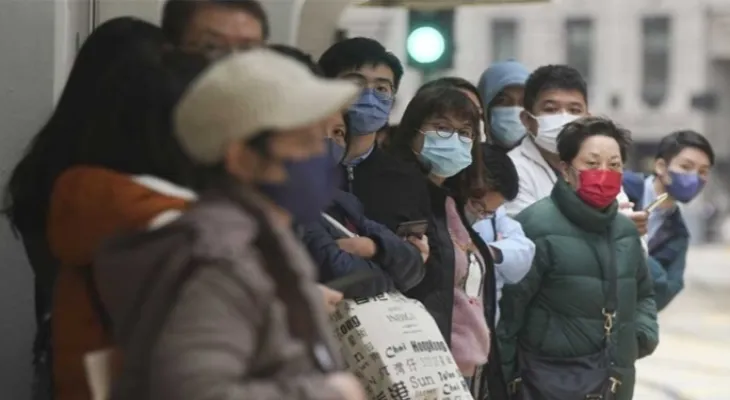Search here
Newspaper
Search here

Arab Canada News
News

Published: November 23, 2023
The World Health Organization expressed concern over the increase in respiratory diseases and pneumonia cases in China, urging the authorities to provide detailed information on the matter and calling on the population to "take precautionary measures."
These concerns come nearly four years after the emergence of a mysterious "infectious pneumonia" in China that was behind the COVID-19 pandemic. The WHO faced criticism for not issuing an early warning.
The organization also said in a statement published on the X platform that it "has sent a formal request to China for detailed information on the increase in respiratory diseases and the outbreak of pneumonia among children," calling for "steps to reduce the risk of respiratory diseases."
It added that it recommends people in China to "follow necessary measures to reduce the risk of respiratory diseases," including "recommended vaccination, avoiding sick people, staying home when ill, undergoing tests and receiving medical care when needed, wearing masks when appropriate, ensuring good ventilation, and regular hand washing."
On November 13, Chinese authorities attributed this increase in respiratory diseases to the lifting of COVID-19 restrictions and the spread of known pathogens.
At the time, they stressed the need to improve disease surveillance in healthcare institutions, in addition to strengthening the healthcare system's capacity to care for patients, according to the WHO.
Meanwhile, Chinese official media and the global disease monitoring system "ProMED" reported on Tuesday unconfirmed pneumonia cases among children in northern China.
The WHO indicated that it is seeking to identify the sources of information from "ProMED."
The organization's statement also added that "the WHO requested on November 22 additional epidemiological and clinical information, as well as laboratory results regarding the reported disease outbreaks among children."
Also, the organization requested "additional information about recent trends in the spread of known pathogens, including influenza, SARS-CoV-2 (the virus that causes COVID-19), respiratory syncytial virus affecting infants, mycoplasma pneumonia (a bacteria causing pneumonia), as well as the healthcare system's capacity to handle cases."
The capital Beijing, located in northern China, is currently experiencing a cold wave, with temperatures expected to drop below zero on Thursday evening.
Deputy Director of the Beijing Center for Disease Control and Prevention Wang Kuanyi reminded on Wednesday that the city "is entering a season witnessing an increase in respiratory infectious disease rates."
The WHO says it is in contact with doctors and scientists through its partnerships and technical networks in China.
The organization criticized Chinese authorities for the lack of transparency during the investigation into the origin of the COVID-19 pandemic, whose first cases were detected in China at the end of 2019.
This investigation has not yet reached a conclusive finding.
Comments